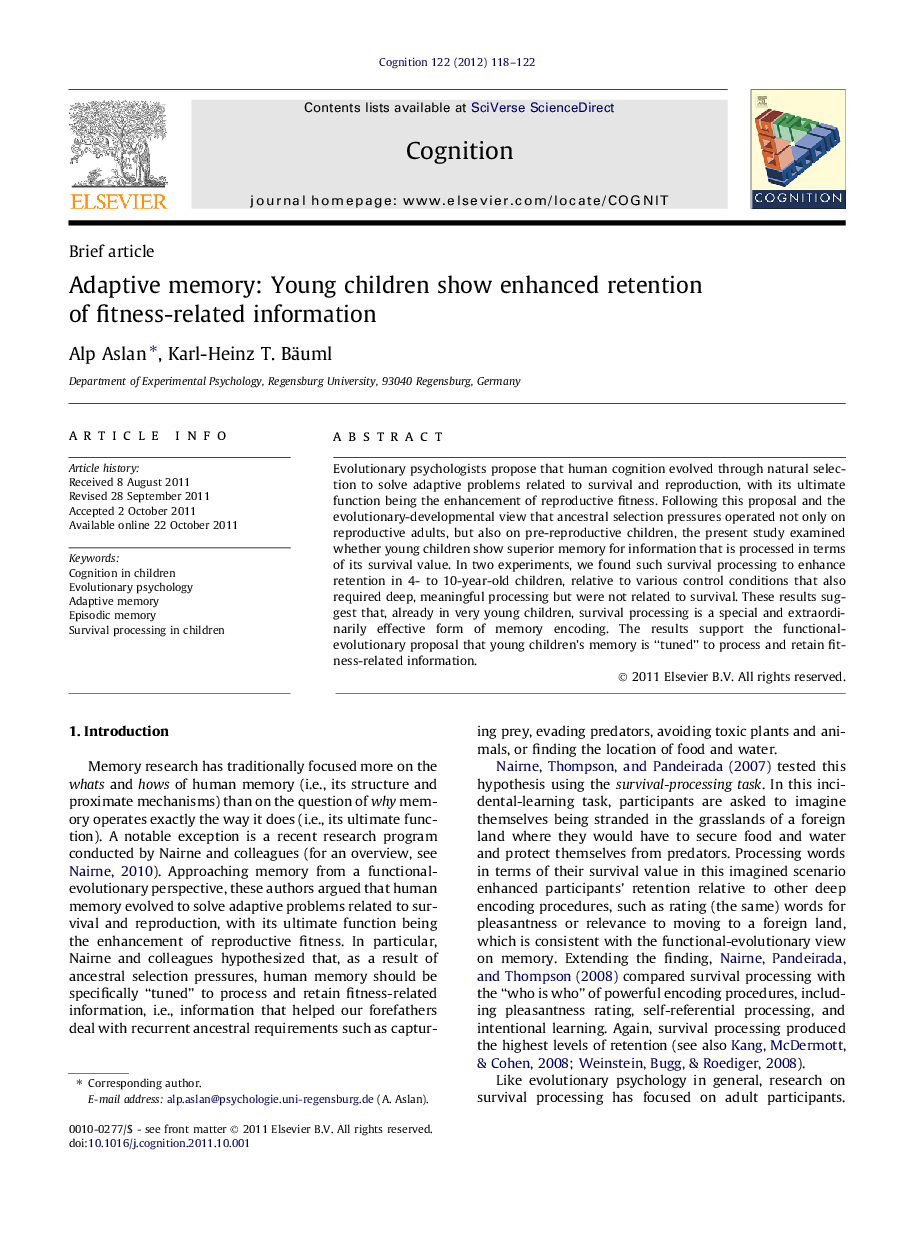| Article ID | Journal | Published Year | Pages | File Type |
|---|---|---|---|---|
| 926947 | Cognition | 2012 | 5 Pages |
Evolutionary psychologists propose that human cognition evolved through natural selection to solve adaptive problems related to survival and reproduction, with its ultimate function being the enhancement of reproductive fitness. Following this proposal and the evolutionary-developmental view that ancestral selection pressures operated not only on reproductive adults, but also on pre-reproductive children, the present study examined whether young children show superior memory for information that is processed in terms of its survival value. In two experiments, we found such survival processing to enhance retention in 4- to 10-year-old children, relative to various control conditions that also required deep, meaningful processing but were not related to survival. These results suggest that, already in very young children, survival processing is a special and extraordinarily effective form of memory encoding. The results support the functional-evolutionary proposal that young children’s memory is “tuned” to process and retain fitness-related information.
